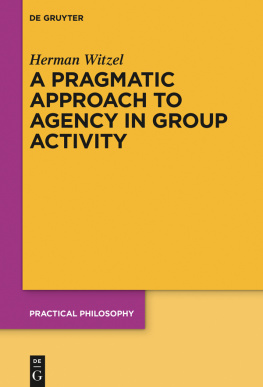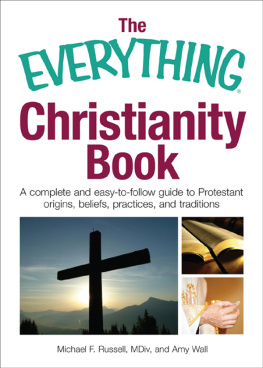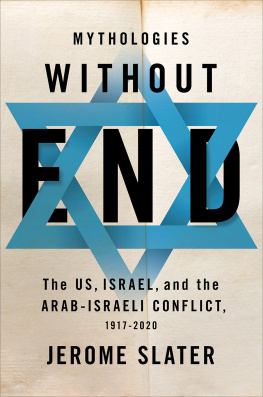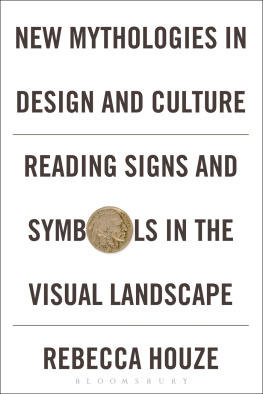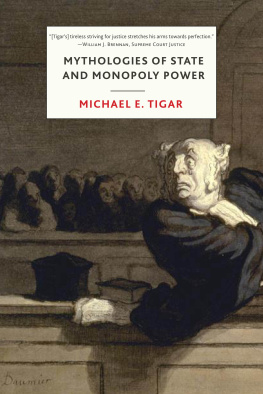E.J. Michael Witzel - The Origins of the Worlds Mythologies
Here you can read online E.J. Michael Witzel - The Origins of the Worlds Mythologies full text of the book (entire story) in english for free. Download pdf and epub, get meaning, cover and reviews about this ebook. year: 2012, publisher: OUP Premium, genre: Romance novel. Description of the work, (preface) as well as reviews are available. Best literature library LitArk.com created for fans of good reading and offers a wide selection of genres:
Romance novel
Science fiction
Adventure
Detective
Science
History
Home and family
Prose
Art
Politics
Computer
Non-fiction
Religion
Business
Children
Humor
Choose a favorite category and find really read worthwhile books. Enjoy immersion in the world of imagination, feel the emotions of the characters or learn something new for yourself, make an fascinating discovery.

- Book:The Origins of the Worlds Mythologies
- Author:
- Publisher:OUP Premium
- Genre:
- Year:2012
- Rating:5 / 5
- Favourites:Add to favourites
- Your mark:
- 100
- 1
- 2
- 3
- 4
- 5
The Origins of the Worlds Mythologies: summary, description and annotation
We offer to read an annotation, description, summary or preface (depends on what the author of the book "The Origins of the Worlds Mythologies" wrote himself). If you haven't found the necessary information about the book — write in the comments, we will try to find it.
The Origins of the Worlds Mythologies — read online for free the complete book (whole text) full work
Below is the text of the book, divided by pages. System saving the place of the last page read, allows you to conveniently read the book "The Origins of the Worlds Mythologies" online for free, without having to search again every time where you left off. Put a bookmark, and you can go to the page where you finished reading at any time.
Font size:
Interval:
Bookmark:
The Origins of the Worlds Mythologies
E.J. Michael Witzel


Oxford University Press, Inc., publishes works that further
Oxford Universitys objective of excellence
in research, scholarship, and education.
Oxford New York
Auckland Cape Town Dar es Salaam Hong Kong Karachi
Kuala Lumpur Madrid Melbourne Mexico City Nairobi
New Delhi Shanghai Taipei Toronto
With offices in
Argentina Austria Brazil Chile Czech Republic France Greece
Guatemala Hungary Italy Japan Poland Portugal Singapore
South Korea Switzerland Thailand Turkey Ukraine Vietnam
Copyright 2012 by Oxford University Press, Inc.
Published by Oxford University Press, Inc.
198 Madison Avenue, New York, New York 10016
www.oup.com
Oxford is a registered trademark of Oxford University Press.
All rights reserved. No part of this publication may be reproduced,
stored in a retrieval system, or transmitted, in any form or by any means,
electronic, mechanical, photocopying, recording, or otherwise,
without the prior permission of Oxford University Press.
Library of Congress Cataloging-in-Publication Data
Witzel, Michael, 1943
The origins of the worlds mythologies/E.J. Michael Witzel.
p. cm.
Includes bibliographical references and index.
ISBN 978-0-19-536746-1 (hardcover: alk. paper)
ISBN 978-0-19-981285-1 (pbk. : alk. paper)
1. Mythology. 2. Myth. I. Title.
BL312.W58 2011
201.3dc22 2010050957
1 3 5 7 9 8 6 4 2
Printed in the United States of America
on acid-free paper
For: Yayoi
Manabu
Meimei
Most interesting findings usually result
from hypothesis formation
based on preliminary data analyses.
C. C. RAGIN
On a cold February night in 1990, I rushed down a steep Japanese hill to bring fire to the world of the living. Along with some 2,000 men, all dressed in white and carrying burning torches, I ran down some uneven 500-odd steps to bring fire, Prometheus-like, to the women assembled below in the small town of Shingu in Wakayama Prefecture. This was a men-only affair: that day, women were forbidden to go up to the Kamikura Shrine, where a Shint priest kindled the first fire of the lunar new year and distributed it to us. The towns men, stray acquaintances, whom I had asked for help, were somewhat surprised about the foreigner who wanted to participate. They nevertheless accepted and embraced me warmly, helped me to buy the special clothes and dress up properly, tying the thick straw cord around my waist, getting my taimatsu torch inscribed with traditional good wishes. Like other small groups, loudly greeting each other and clashing our torches, we roamed the town during the afternoon, accepting all-white food like radish and rice from the towns women, who had put up stalls along our path, and fortifying ourselves in various pubs with a lot of rice wineso as to strengthen us for the ordeal. The crowded run downhill, my companions said, was very dangerous: some people break their legs each year. I got away with a little singeing of my ceremonial dress.
The experience was moving: the mad rush downhill in a community of men with the same purpose, and their friendliness toward a stray stranger who had merely dropped in from his sabbatical at Kyoto. Our small group included a number of men who had come home from far away for the ot-matsuri and its rites. Our task of delivering the new fire accomplished, we continued to an all-male bathhouse and on to a private dinner party in one of my new friends houses. Next day, back at the shrine, I interviewed the priest who had performed the churning of the new fire, and he readily answered, even though he was busy with an elaborate private ritual. His counterquestion was whether I had felt pure the evening before.
Then, there was the stirring feeling of participating in an archaic ritual that, people say, had been performed for some 1,400 years, always on the sixth day of the first lunar month. It was like taking part, as a Westerner like me would think, in a pre-Christian ritual that symbolized the bringing of fire by Prometheus (see 3.5.3) and the simultaneous delivery of the sun deity, Amaterasu, from her year-end and primordial rock refuge ( 3.5.1).
By 1990, I had been playing with fire for quite some time: for some 25 years, I had been involved in the study of ancient Indian and Iranian religious and ritual texts, many of which deal with the sacred fire. I had read a lot of the ancient-most Indian mythology found in the Veda, and I had witnessed many Vedic and Buddhist fire rituals during my nearly six years in Nepal in the seventies.
The first, traditional Vedic fire ritual that I saw there was a secluded and secret affair. The agnihotra ritual was carried out by a Brahmin priest whose family had done so for the Nepalese king for the past 200 years. After that first experience I managed to witness many other solemn rituals. Active participation, however, is not allowed for those not born as Hindus. It was deeply moving to see the agnihotra performed exactly as our 3,000-year-old Sanskrit texts tell us. Its priest, living in a compound next to the national temple of Paupatinth just east of Kathmandu, was very friendly and allowed me and even our NTV film crew ready access. The film then helped me greatly in comparing ancient texts and modern performance.
***
However, next to my experience of archaic Indian rituals, I had also read, since my student days, some Japanese texts dealing with the oldest myths and rituals of Japan. For this reason, I was interested in Japanese fire rituals and made an effort to witness a number of them, both Shint and Buddhist, during my yearlong stay in Kyoto.
However, the one at Shingu is special: it is the ritual enactment of an ancient myth, a combination that I had often encountered in Vedic rituals. A month earlier, we had made a tour to Shio no Misaki, the southernmost promontory of the Kii Peninsula, to greet the first sun of our (common calendar) New Year, on January 1. Again, there was a throng of people who had come to watch the first rising of the sun.
During my year at Kyoto, I had many other occasions to see the close interrelation between ancient Japanese myth and current rituals, performed by supposedly irreligious (mushinky) modern citizens. Observing them rekindled my long-standing interest in the oldest Japanese mythological texts of the early eighth century. I was especially interested in the myth of the delivery of the sun (see 5.3.1). It is found in the oldest, originally oral text, the Kojiki, which was written down by imperial order in 712 CE. The myth has a very close resemblance to the Old Vedic one of the delivery of sunlight from a cave of the Dawn, Uas.
I had noticed that correlation a quarter of a century earlier, as a graduate student, but I did not seriously pursue it as I then saw no solution as to the historical relationship between both myths, at least not one according to the methods of philology and historical linguistics that I was trained in. We were used to explanations such as immigration, whereby certain tribes brought their language, religion, and rituals with them. Pouring over ancient Kashmiri birch bark manuscripts and discussing the fine details of the migration process in the seminars of my late teachers Paul Thieme at Tbingen and Karl Hoffmann at Erlangen, and much later F. B. J. Kuiper at Leiden, the pattern of the Aryan migration was foremost in our minds. That means the movement of Indo-Iranian (rya) tribes speaking the language ancestral to both Old Iranian and Vedic, moving southward from the steppes around the Ural Mountains. Even allowing for some migrations from the continent into early Japan, however, the country is very distant from India and Iran, and its language belongs to a completely different linguistic family. A close relationship seemed excluded.
Next pageFont size:
Interval:
Bookmark:
Similar books «The Origins of the Worlds Mythologies»
Look at similar books to The Origins of the Worlds Mythologies. We have selected literature similar in name and meaning in the hope of providing readers with more options to find new, interesting, not yet read works.
Discussion, reviews of the book The Origins of the Worlds Mythologies and just readers' own opinions. Leave your comments, write what you think about the work, its meaning or the main characters. Specify what exactly you liked and what you didn't like, and why you think so.

